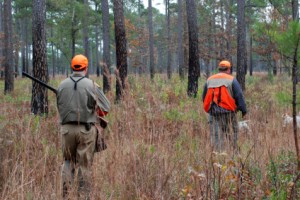Disarming Conversation
 My home phone rang Wednesday night; the same Arizona number had called several times before.
My home phone rang Wednesday night; the same Arizona number had called several times before.
This time I answered, and acknowledge that I was indeed Charles Weinstein.
“Mr. Weinstein, I’m Robert Alvarez, and I’m calling for the National Rifle Association.”
Oy vey. (I hunt birds. My purchases of shotguns and hunting licenses have placed me on some interesting lists.)
The caller asked about my current season, and (oddly) we commiserated that work and life demands had kept each us from the fields so far this year. Then Mr. Alvarez turned to his business, describing recent gun control recommendations made by a United Nations Commission, and explaining that President Obama supported these recommendations. The NRA, it seems, needs my support (presumably moral, but certainly financial).
I explained that I am actually in favor of some gun control measures, and that I would abide by appropriate restrictions, if they could reasonably be expected to create a safer society.
“Well, we disagree,” He said. “I believe in that the bear arms should not be abridged, and that it is a cornerstone of a safe society. Thank you for speaking with me tonight. Have a Happy Thanksgiving.”
I extended the same wishes to him, sincerely. We need more discourse like this.
This representative of the NRA was pleasant, reasonable, respectful, and articulate. He referred to the President as such, without derision. Our policy disagreement did not require either of us to be nasty. This is precisely the constructive spirit we need to address social problems large and small, and to maintain (or, one might argue, to create) a functioning Republic. I blogged about that very spirit recently on LeadershipandCommunity.com .
Civility is effective. That brief conversation led me to think more critically about my willingness to abridge a Constitutional protection. A broader right to privacy is likewise challenged by increasingly explicit scanning technologies deployed to our airports. Should flying constitute “implied consent,” as driving an automobile implies consent to a breath or blood test? What is the nature of the right to privacy? Does the risk of terrorism justify the abridgement of that right? These are important questions, and Mr. Alvarez of the NRA was effective at raising them (if not at raising money, at least from my house). I am grateful.
Have a great Thanksgiving!
CAW

Leave a Reply
Want to join the discussion?Feel free to contribute!